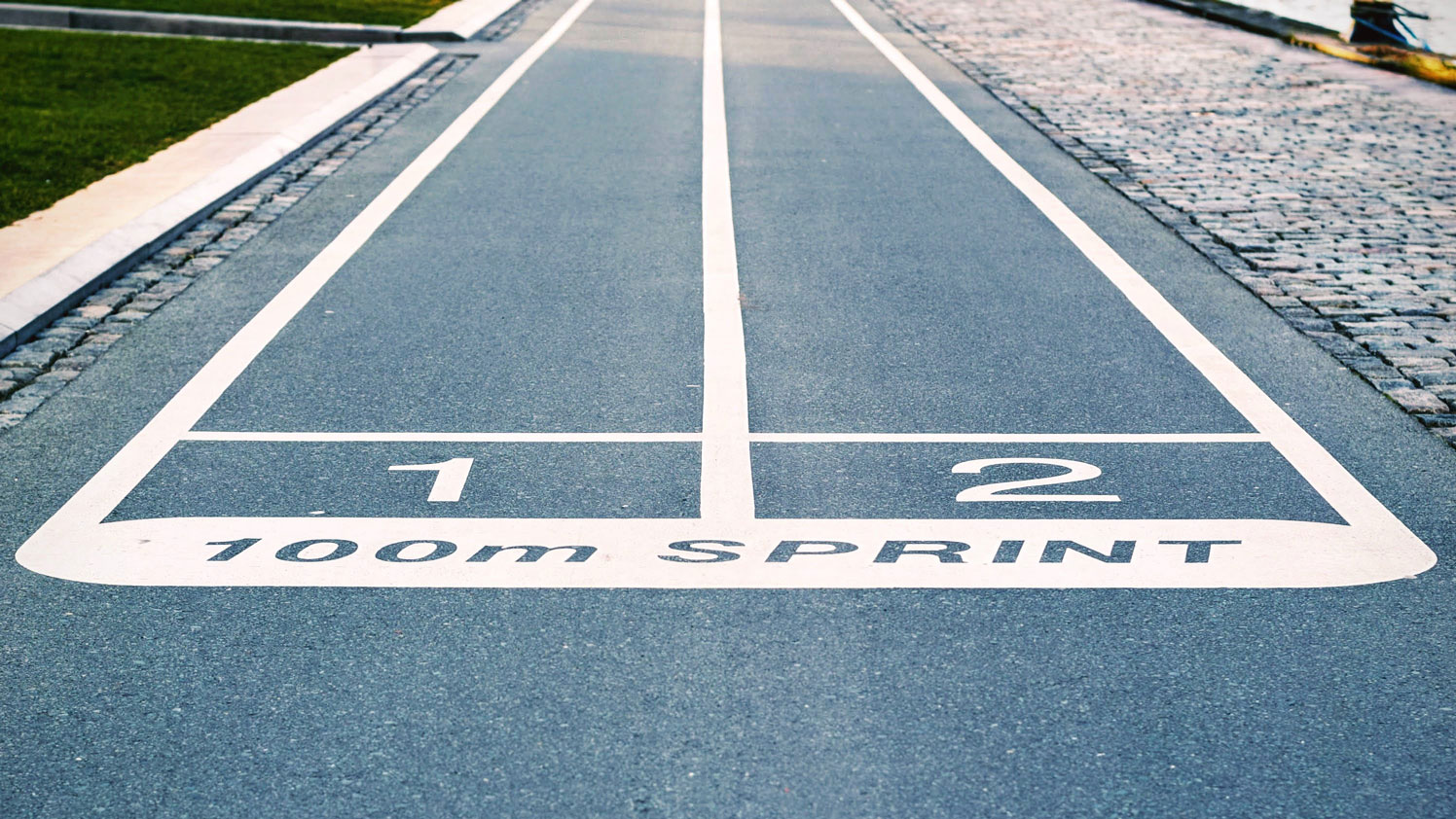Carbs & Exercise Part 1 | Fueling For Competition

By Dr Adam Collins, Form’s Head of Nutrition and Program Director for the MSc and BSc Nutrition courses at the University of Surrey. A qualified nutritionist for nearly 20 years Dr Collins is also a PhD in energy expenditure and body composition. His research interests lie in exercise nutrition, body composition, exercise intensity and energy balance, intermittent fasting and timing of food around exercise.
Carbohydrates have long been thought to be a limiting factor in exercise performance. This is largely due to the increased demand for carbohydrate oxidation during all forms of exercise, coupled to the fact that there are finite carbohydrate stores in the body. From this premise, numerous studies have shown that feeding carbohydrate before (or during in longer exercise) improves exercise performance, originating from seminal work undertaken in the early 1980s.
To this end, conventional sports nutrition advice focuses on supply and replenishment of carbohydrate around exercise, specifically the importance of starting exercise with replete glycogen stores, ensuring blood glucose levels are kept topped up, and helping ensure glycogen stores are replenished following exercise.
It is important to appreciate that most conventional sports nutrition advice and indeed sports nutrition products are focussed on achieving maximum performance. Performance could be many things but is often related to an event, match or competition, whereby you either want to maintain exercise at a given intensity for longer (e.g. complete an endurance event), perform the same exercise but at higher speed or intensity (e.g. quickest race time), or repeat more bursts of exercise in a given amount of time (e.g. game, match or boxing bout).
“There is some evidence to suggest that just rinsing some carbohydrate in the mouth and spitting it out may provide an ergogenic effect, but this is not actually because you have taken on board any extra fuel”
With this focus, what you are trying to do is to ensure you have adequate fuel on board to sustain that performance, and the fuel that you are potentially going to run out of is carbohydrate.
Carbohydrates Before Exercise
Feeding a high carbohydrate diet or meal(s) prior to performing will ensure you have full glycogen stores in your muscles and your liver. The glycogen in your muscles can supply the muscles themselves with carbohydrate, but the liver glycogen can export glucose out into the blood for use in the brain, muscles and other organs. That supply of glucose to the brain is equally important in terms of performance.
This feeding of carbs prior to exercise for glycogen repletion should be in advance, often several hours or maybe more than 24 hours prior to the event. Feeding some high glycaemic carbohydrate (sports drinks, gels, bars) closer to the start of the performance may serve to top up blood glucose levels and help initiate carb uptake in the muscles, but will not really impact on glycogen stores. In addition, feeding such products close to the start of an event may actually be detrimental to performance (but more on that later in this series).
Carbohydrates During Exercise
Should you be taking on board carbs during the event itself? It depends on the duration of the exercise or event. If less than one hour then there really is no need as you will be able to sustain that carb demand through what you have already at the onset of exercise, provided you have done the above. There is some evidence to suggest that just rinsing some carbohydrate in the mouth and spitting it out may provide an ergogenic effect, but this is not actually because you have taken on board any extra fuel.
If the event lasts more than one hour then there is logic to taking on board some high GI carbs to keep blood glucose topped up and eke out your liver glycogen for longer, but you can only really deliver about 1g/minute into the system from the gut (or 60g per hour). You can go above this 1g/minute if you use different forms of high GI carbs, for example fructose and glucose polymers, but you need to ensure your gut is able to cope with this by testing it out during training.
Carbohydrates After Exercise
At the end of exercise, the advice is often to replenish the spent carbohydrate (mainly glycogen) by consuming some significant carbohydrate. The interesting thing to note is that the stress of exercise (glycogen depletion coupled to a rise in catecholamines such as adrenaline), cause you to increase the rate of glycogen synthesis in the immediate post-exercise period, which is roughly in the first two hours.
Given this knowledge, many suggest it imperative to take advantage of this and prioritise taking in some carbs immediately post-exercise, again using products such as drinks, bars, and shakes. The reality is that this is not necessary unless you have a limited window of opportunity to recover before exercising again (i.e. you are competing again within 24 hours, or more likely the next 12 hours such as in back-to-back stages of the tour de France).
Therefore, it is very feasible that you will be able to recover your glycogen stores adequately over a longer period of time between competitions or events, provided you consume adequate amounts of carbohydrate in the meals, snacks and/or drinks of that period.
So, in short, competition nutrition in terms of carbohydrate is about loading up before, keeping carbs topped up during and replacing carbs afterwards. But even that is often misappropriated advice.
In the next instalment of our Carbohydrates & Exercise series, we’ll look at optimal carb intake concerning training outside of competition.
_


















